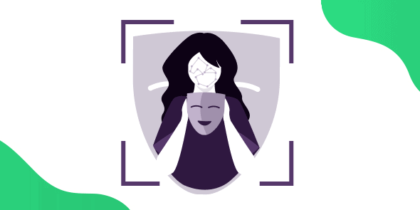Table of Contents
Cybersecurity is the practice of protecting computer networks and systems from digital attacks. These attacks can come from viruses, malware, phishing scams, etc. Cybersecurity is critical because it helps keep our information and data safe from criminals who may try to use it for nefarious purposes.
Types of cybersecurity
There are many different types of cybersecurity, and it is constantly evolving. Some common types of cybersecurity include antivirus software, firewalls, and encryption. Antivirus software helps to protect your computer from viruses and other malware. Firewalls help to block unwanted traffic from accessing your network. Encryption helps keep your data safe by making it unreadable to anyone who does not have the proper key.
Why is cybersecurity critical?
With cybersecurity threats and personal information thefts rising every year, businesses need to enhance their cybersecurity game to avoid being compromised. In 2021 alone, there were 1,862 significant data breaches worldwide that exposed the data of millions of people due to weak security measures.
Programs and data are a business’s most valuable assets. It’s imperative to focus on a holistic cybersecurity policy encompassing coverage across data, systems, networks, and information security policies, including social engineering considerations. These are necessary precautions to avoid identity theft and confidential and susceptible information leaking.
A robust cybersecurity policy must also incorporate end-user education about digital security awareness and risks. By taking these measures, businesses can protect themselves from becoming victims of costly cybersecurity attacks.
Standard cybersecurity practices you should follow
- Companies need to constantly improve upon their quality control of cybersecurity policies, including the first incident response of security breaches and how their security department team will handle future violations.
- A security team must also incorporate digital security for cookie policies, deploy virtual private networks for safe remote access, and install and support antivirus software.
- If necessary, the IT team will need to implement a strong BYOD (bring your device) policy, establish a risk assessment framework, and perhaps hire a team composed of an eligible chief information security officer, security architect, security engineer, and security analyst team.
- Companies need to integrate cybersecurity with business continuity planning and their respective IT technological infrastructures after a flood, fire, hurricane, or another hazard-like event.
- They should also deploy threat intelligence security software and cloud security, deploy intrusion prevention systems, and emphasize the importance of data security and general data protection regulation (GDPR).
- It may also be necessary for entities where data centers are used to establish a partnership, or at the minimum, an understanding of expectations for data storage, backup, and recovery, data management, data loss protection, malware protection, and networking, and disaster recovery planning, keeping with a cybersecurity approach, to name a few.
Cyberthreats are emerging
However, cybersecurity is not just a business problem – your mobile phone data, tablet, and computer also contain data information that hackers would like to get their hands on!
For instance, if someone gains access to your social security number, they can apply for credit in your name or file for a tax return to get a refund. For these reasons and more, cybersecurity is something that every business and individual needs to take seriously to avoid cybersecurity threats.
PureVPN invests in cybersecurity
PureVPN, a leading privacy solution provider, envisions a secure and private internet for all users worldwide, even though they live in a country with strict GDPR laws or a part of Five-Eyes Alliance countries that monitor what citizens do online. We strive to strengthen our high-speed servers with more stealth and security, making the app experience better for all PureVPN users.
Types of Cyber Attacks
DDoS Attack
A denial-of-service (DoS) attack is when hackers attempt to make a system or service inaccessible to legitimate users by overwhelming it with a large volume of requests. Such attacks are launched by a single machine. A distributed denial-of-service (DDoS) attack, on the other hand, consists of hackers using multiple compromised machines to flood the intended target, resulting in a denial of service for its intended users.
Malware Attacks
A malware attack is a kind of cyberattack where a piece of malware or malicious software is used by hackers mostly via phishing emails attack and email attachments by injecting computer viruses to perform unauthorized activities on the computer of a victim without their authorization. The objective is to impersonate them and make money by stealing sensitive data, such as online banking credentials or credit card details.
Ransomware Attacks
A ransomware attack utilizes a type of malicious software that limits user access to files on the infected computer by encrypting them. To obtain the decryption key, the victim has to pay a specified sum as ransom, usually in bitcoin.
Social Engineering
A social engineering attack consists of psychologically manipulating an individual into revealing personal information or making security mistakes. This type of cyberattack has been around for a long time because it is difficult to stop with the use of technology alone.
How do I Prevent Cyber Attacks?
Encrypt and Backup Important Data
When it comes to preventing unauthorized access to your sensitive data, encryption is indeed your best friend. According to researchers in the International Journal of Advanced Computer Science and Applications, the “most efficient fix” for data breaches is encryption. Moreover, backup data and store it separately to further protect yourself from the consequences of cyberattacks.
Secure All Hardware
The importance of safeguarding hardware is often overlooked, but it is a simple way to enhance the security of your network and devices. Therefore, make sure you have a robust firewall and antivirus solution in place to keep most, if not all, cyberattacks at bay. Creating complicated passwords and storing them away safely is also of utmost importance.
Keep Software Up-to-Date
The most common threat faced by almost everybody are the vulnerabilities in software. Hackers take advantage of these loopholes in order to gain unauthorized access to devices and the confidential data they hold. For this reason, you need to update your software as soon as new upgrades are made available.
Use Two-Factor Authentication
Two-factor authentication, also known as two-step verification, adds an extra layer of security by asking the user to provide two distinct authentication factors to prove their identity. For instance, you may be asked to enter a PIN number sent to your phone number in addition to entering your password. As such, you are better off enabling 2FA wherever possible.
Know the Threats to Beat Them
It is equally important to know what threats you as an individual or business are most susceptible to. In this way, you will be able to focus your prevention measures on what is most important and better prepare yourself. So, it only makes sense to stay updated about the most common attack vectors and delivery channels as well as how you can stay protected against them.



